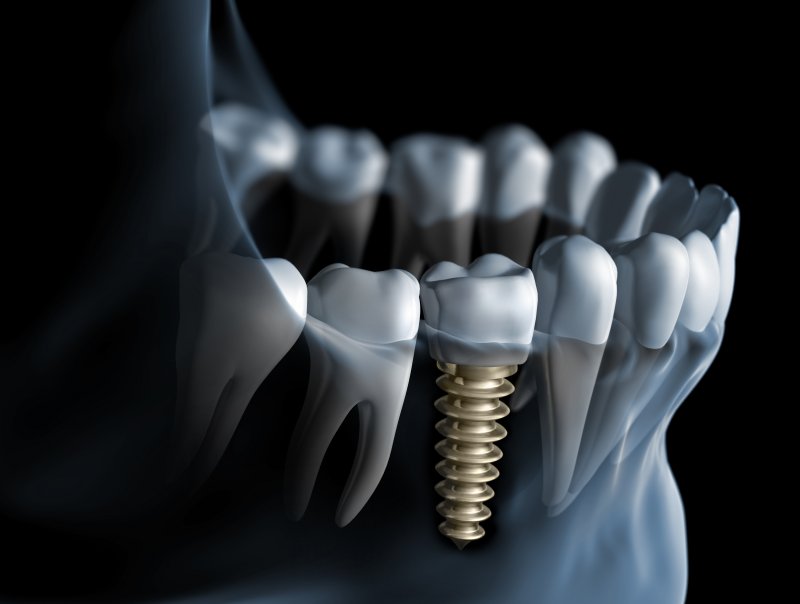
If you’re missing teeth, you aren’t alone. Approximately 178 million Americans are missing at least one tooth while 40 million are missing all of their teeth. Fortunately, modern dental technology allows you to replace your missing teeth with a variety of different options, one favorite being dental implants. Even though they have a high success rate, they can still fail for a variety of different reasons. Continue reading to learn why dental implants in Baltimore fail and what you can do to prevent it from happening to you.
Why Do Dental Implants Fail?
Here are the most common reasons for an implant failure:
- Peri-Implantitis: The is one of the most common reasons for dental implants to fail. This condition is an infection that develops around the implant and gum tissue. Most of the time, it is brought on by poor oral hygiene after the surgery has been completed.
- Bone Loss: When you are missing teeth, you experience bone loss that becomes worse over time. This is because the root of the missing tooth is not there to stimulate the jawbone when you chew. If an implant is placed in a location without a significant amount of bone, it is difficult for it to fuse to the jawbone properly.
- Dental Trauma: If you become injured or encounter an accident where you endure a blow to the mouth, the dental implant may fail and even dislodge.
How Can You Prevent a Dental Implant Failure?
Even though some implant failures cannot be prevented, you can still take steps in order to reduce your risk. Here are a few things you can do to help keep your implants healthy:
- Oral Hygiene: Just because the crowns on your implants are not susceptible to decay doesn’t mean that you can slack on your oral hygiene. You need to have healthy gum tissue to support them. Continue to brush twice and floss once daily. Mouthwash is another great step.
- See Your Dentist: Visit your dentist every six months for regular cleanings and checkups. If there is an issue with one of your implants, it can be addressed sooner rather than later.
- Don’t Smoke: Smoking interferes with the healing process after your placement surgery. It is important that you refrain from smoking for at least a few months after your procedure.
- Increase Your Calcium Intake: Calcium is necessary for strong bones. You can find this mineral in milk, yogurt, broccoli, oranges, and cheese.
- Avoid Bad Habits: This includes refraining from hard candies, ice, and asking your dentist in Baltimore about night guards for bruxism.
- Choose a Dentist Who Uses a Cone Beam Scanner: This allows your dentist to see a three-dimensional model of your mouth that shows your teeth, jawbone, and other important oral structures in great detail.
Dental implant failures are not common, but they do occur. By following the tips listed above, you will be more likely to show off a restored healthy smile for years to come.
About the Author
Dr. Kevin Murphy is an experienced periodontist and prosthodontist who has been working in the field for 34 years. He has published numerous articles and textbook chapters on periodontal regeneration and implant dentistry. He has also lectured nationally and internationally on many topics, including the placement and restoration of dental implants and periodontal prosthesis. Dr. Murphy has taught at the Pankey Institute and is a member of numerous professional organizations including the American Dental Association and the American Academy of Restorative Dentistry. For more information on dental implants or to schedule a consultation, visit his website or call (410) 583-7010.
